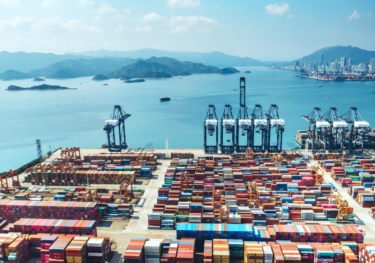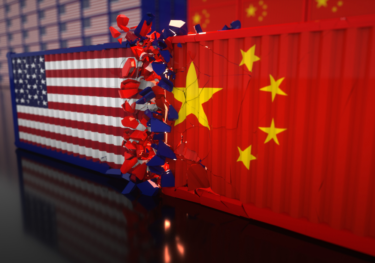Recent Release | 14 Nov 2023
The Economic Impact of China PNTR Repeal

Macro Consulting Team
Oxford Economics

As scepticism towards China is rising among policymakers, businesses grow more concerned about the potential economic fallout from an escalation in US-China tariff policy. Oxford Economics was commissioned by the US-China Business Council (USCBC) to help inform the policymaking process by examining two scenarios that could materialize if China’s Permanent Normalized Trade Relations (PNTR) status was revoked – including the increase of US tariffs on Chinese goods to column 2 rates as well as a Chinese retaliation imposing pre-WTO rates on US goods.
Our analysis incorporates state-of-the art trade and economic models, including the Oxford Economics GEM, and finds that the US could lose up to $1.9trn in output over the five-year period following a China PNTR repeal.
This is our third study for USCBC after examining the impact of the US-China relationship and associated scenarios in two previous reports (2017 and 2021).
To download the report, please complete the form below.
The experts behind the research
Our Macro Consulting team are world leaders in quantitative economic analysis, working with clients around the globe and across sectors to build models, forecast markets and evaluate interventions using state-of-the art techniques. Lead consultants on this project were:

David Schockenhoff
Head of US Macro Consulting

Michael Kleiman
Associate Director, North America Macro Consulting
Read the report
Complete the form below to download the report.
Tags:
You might be interested in

China decoupling – how far, how fast?
Economic decoupling from China is ongoing, but the latest evidence suggests that, especially outside the US, the process is gradual and piecemeal. Trade decoupling may be slowly spreading from the US to other advanced economies, however surveys suggest foreign investors' attitudes to China improved slightly in 2023, though they are still more negative than a few years ago.
Find Out More
The Deglobalisation Myth: How Asia’s supply chains are changing
Despite talk of deglobalisation, a quantitative analysis of intermediate goods show global supply chains have continued to expand in the last five years. Amid a volatile world economy, swiftly evolving supply chains are minting new winners and losers in global trade.
Find Out More
Nearshoring – China’s loss is not (yet) Mexico’s gain
Mexico is the best-positioned emerging market to gain from "nearshoring." but that does not mean it has seen the greatest benefits. Asian economies and Canada have grown their share of US imports faster than Mexico since the US-China trade decoupling started five years ago.
Find Out More
Unprecedented mix of challenges hurts APAC’s 2023 outlook
We believe 2023 is likely to be a difficult year for nearly all Asian economies. Growth should slow everywhere, except perhaps China and Thailand. The slowdown will likely be driven by a recession in the global economy but also due a shift global demand away from goods and towards services.
Find Out More